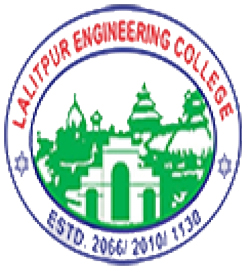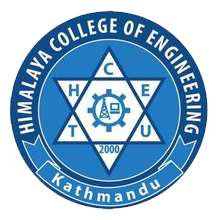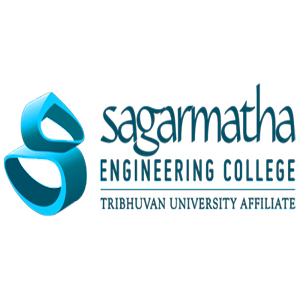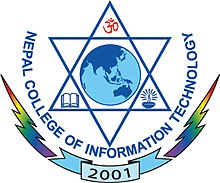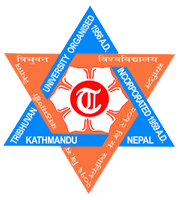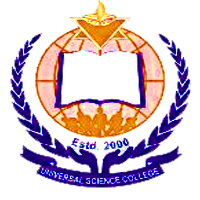Overview
Bachelor of Electronics, Communication and Information Engineering at Kantipur Engineering College, Dhapakhel, Lalitpur
Bachelor of Electronics, Communication and Information Engineering (ECI) at Kantipur Engineering College (KEC), Dhapakhel, Lalitpur, follows the Tribhuvan University–Institute of Engineering (IOE) framework and develops practical skills across electronic circuits, signal processing, communication systems, computer networks, and embedded applications.
Students study within the Kathmandu Valley, which supports lab work, field exposure, and short seminars with industry practitioners. Admission runs through the IOE computer-based entrance system, and scholarships are available under the college policy.
-Building.jpg)
Highlights
-
Affiliation: Tribhuvan University, Institute of Engineering (IOE)
-
Program level: Bachelor of Engineering in Electronics, Communication and Information Engineering
-
Location: Dhapakhel, Lalitpur (Kathmandu Valley)
-
Learning setting: Classroom theory, laboratories, and project-based coursework
-
Entry route: IOE computer-based entrance and merit-based intake at KEC
-
Support ecosystem: Department labs, student clubs, Research, Training & Consultancy Division (RTCD), annual conference and publication channels
-
Scholarships: Categories under the KEC Scholarship & Excellence Award Policy
-
Institutional recognition: Nepal Engineering Council Permanent Status granted to KEC (May 2025)
Overview
ECI at KEC combines electronics fundamentals with communication principles and information-centric subjects. You begin by building core understanding in mathematics, physics, and circuit behavior. Later semesters introduce signals, networks, microprocessors, wireless topics, and system integration. Labs and field tasks help you convert theory into working prototypes and measured results.
The Dhapakhel setting offers access to telecom providers, electronic suppliers, and training centers across the Valley. Short talks and student-led sessions add context to coursework. RTCD activities and the campus conference provide a platform to present project outcomes, which improves writing habits and public speaking before your final capstone.
Curriculum Details
The program follows the TU–IOE semester structure over eight semesters. Early modules strengthen basic science and circuit intuition. Advanced semesters add communication, networking, and embedded work. A typical flow at KEC includes:
-
Basic Electrical and Circuit Analysis: DC/AC analysis, network theorems, transient response, phasors, and lab-based verification using oscilloscopes and function generators.
-
Electronic Devices and Circuits: Diodes, BJTs, MOSFETs, biasing, small-signal models, amplifiers, and filters. Students record I–V curves and study device behavior under safe operating limits.
-
Digital Logic: Number systems, combinational and sequential circuits, state machines, and logic implementation using HDL or programmable kits for simple controllers.
-
Signals and Systems: Time and frequency domain views, convolution, sampling, and basic spectral analysis that supports later work in communication and control.
-
Microprocessors and Microcontrollers: Instruction sets, interrupts, timers, serial interfaces, and peripheral handling. Small projects use sensor input and actuator output to complete a control task.
-
Communication Systems: Modulation and demodulation concepts, noise, SNR, channel effects, error control coding at an introductory level, and performance measurement through simulations and bench work.
-
Electromagnetic Field Basics: Fields, waves, transmission lines, and matching. Students learn practical considerations for laboratory setups and simple antenna exposure where feasible.
-
Computer Networks: Models, addressing, routing ideas, and socket programming for message exchange. Packet tracing and configuration tasks reinforce core concepts.
-
Digital Signal Processing (DSP): Discrete-time signals, filters, FFT, and applications such as simple audio filtering or feature extraction in lab assignments.
-
Control Fundamentals: Modeling, stability checks, and controller tuning at a level that supports embedded use cases.
-
VLSI and HDL Exposure: Entry-level modules on hardware description and layout ideas to build basic intuition for integrated systems.
-
Wireless and Mobile Communications: Multiple access ideas, cellular concepts, and link budgeting at an introductory level supported by simulation.
-
Information and Data Topics: Basics of data handling, storage formats, and reliability checks in ECI contexts.
-
Electives: Options vary; typical selections include antenna basics, optical communications, advanced embedded work, information security fundamentals, or IoT-oriented modules.
-
Project Work and Capstone: Proposal, implementation, testing, report writing, and viva. Teams document constraints, choices, and measured outcomes rather than only final screenshots.
First-year coordination by the Department of Engineering Science & Humanities covers mathematics, physics, chemistry, communication skills, and mechanical basics. This foundation supports academic writing, lab documentation, and exam patterns before you step into deeper ECI modules.
Objectives
-
Build sound circuit intuition and measurement habits that support reliable laboratory outcomes.
-
Develop a working understanding of signals, communication concepts, and network behavior.
-
Strengthen embedded thinking through microcontroller tasks and simple real-time applications.
-
Encourage careful documentation and technical reporting aligned to TU assessment.
-
Prepare students for entry-level roles in telecom, electronics support, embedded tasks, and network operations.
Scope
ECI graduates work across telecom operators, electronics distributors, service firms, and system integrators. Initial roles involve equipment configuration, field testing, network support, and product maintenance under supervision. Some students move into software-focused paths that rely on systems knowledge, while others pursue postgraduate study in communications, signal processing, or electronics.
The TU–IOE framework supports recognition within Nepal’s public bodies and private sector recruitment. KEC’s institutional standing and Valley proximity offer regular contact with practitioners and local projects during the semester cycle.
Learning Outcomes
Students who complete the course should be able to:
-
Analyze and assemble basic analog and digital circuits on breadboards or PCBs and verify behavior using standard instruments.
-
Interpret spectra and time-domain plots for common signals and explain the impact of sampling and filtering.
-
Configure microcontrollers to handle interrupts, timers, serial interfaces, and data logging for small embedded tasks.
-
Explain modulation choices and relate channel conditions to performance measures such as BER or throughput in simplified lab settings.
-
Prepare and test small network applications and read packet traces to spot configuration issues.
-
Produce concise technical reports that present setup, procedure, results, and limitations with clear figures and tables.
Skill Development Modules
KEC combines classroom study with targeted practice:
-
Electronics Labs: Diode and transistor biasing, amplifier gain and bandwidth checks, filter behavior, and safe handling of power rails.
-
Digital Labs: Combinational logic blocks, counters, registers, and state machines implemented using trainer kits or HDL on entry-level boards.
-
Signals/DSP Labs: Sampling experiments, FIR/IIR filter tasks, and FFT-based analysis of recorded signals.
-
Communications Labs: AM/FM/PM or digital modulation using kits or software tools, constellation plots, SNR variation, and simple coding experiments.
-
Embedded Workshops: Sensor reading, actuator control, communication over UART/I2C/SPI, and basic low-power considerations for small projects.
-
Networks Labs: Addressing practice, basic routing concepts, socket programming, and traffic observation with standard tools.
-
Testing and Compliance Basics: Grounding practices, ESD care, wiring discipline, and documentation checklists that mirror entry-level industry expectations.
-
Capstone Workflow: Proposal, weekly progress log, integration week, test harness, poster or presentation, and defense.
Teaching Methodology
Teaching mixes lectures, tutorials, and guided labs with clear rubrics for internal assessment. Faculty schedule periodic quizzes and short oral checks to keep learning steady. Labs follow a pre-lab brief, hands-on tasks, and concise post-lab notes.
Student clubs host peer sessions, mini hack days, and component teardown activities where allowed. RTCD and the campus conference offer a channel to prepare abstracts and poster drafts based on strong lab or capstone results.
Admission Requirements
Admission into Bachelor of ECI at KEC follows the IOE entrance route.
-
Eligibility: Grade 11 and 12 (Science) with Physics, Chemistry, and Mathematics, minimum Grade C in each subject; or 45% in a relevant diploma/equivalent under IOE rules for the cycle.
-
Entrance exam: Computer-based objective test conducted by IOE covering Mathematics, Physics, Chemistry, English, and aptitude as specified for the year.
-
Selection at KEC: Applicants who pass the IOE test apply to KEC; intake follows the IOE merit list among those who choose the college.
-
Documents: Academic transcripts, character certificate, citizenship or passport, photographs, and any category documents for scholarships where relevant.
Applicants should check the current IOE notice and KEC updates for exact dates and instructions.
Career Opportunities
Graduates typically start as:
-
Telecom Field or NOC Trainee: Equipment checks, link monitoring, and routine maintenance under a senior engineer.
-
Electronics Support / Test Technician: Board-level checks, instrument setup, and failure reporting with clear logs.
-
Embedded Junior: Microcontroller tasks, sensor integration, and firmware updates for small devices.
-
Network Support Associate: Addressing, basic configuration, and ticket handling with documentation.
-
Technical Sales Support (engineering focus): Pre- and post-installation guidance for hardware or communication products with accurate records.
-
Software/Systems Roles (select cases): Scripting for automation, data parsing, and interface work that leverages ECI foundations.
Further study options include communications, signal processing, electronics, or related areas based on interest and capstone direction.
Scholarships and Financial Aid
KEC’s Scholarship & Excellence Award Policy includes:
-
Multi-year tuition waivers based on policy criteria and committee review.
-
Semester waivers linked to performance and defined rules.
-
Local-ward support for eligible permanent residents under the specified Lalitpur wards.
-
Staff-children category with defined fee relief.
-
Merit rebates connected to IOE rank and internal policy.
-
Excellence Awards for semester performance, capstone quality, and selected extracurricular outputs.
Students should read the current policy, prepare documents early, and apply within the announced window.
Why Choose This Course?
-
Balanced foundation: Electronics, signals, communications, networking, and embedded topics arranged across eight semesters.
-
Practical rhythm: Regular labs, measured results, and clear reporting habits that mirror industry expectations.
-
Project habit: Capstone work that moves from proposal to test harness and defense, building a real portfolio.
-
Academic community: Clubs, RTCD events, and a campus conference that promote presentation and writing practice.
-
Recognized setting: TU–IOE program in an established campus with clear academic processes.
Conclusion
Bachelor of Electronics, Communication and Information Engineering at KEC offers a steady path for students who want hands-on learning supported by a structured curriculum. The course builds circuit intuition, signal awareness, communication insight, and embedded skills step by step. The campus ecosystem reinforces writing, measurement, and teamwork so your portfolio reflects real tasks rather than only exam results. Scholarships help eligible students manage costs, and the Valley location supports contact with practitioners during the semester cycle.
FAQ
1) What is the awarding university for ECI at KEC?
Tribhuvan University through the Institute of Engineering.
2) How does admission work for this course?
You sit for the IOE computer-based entrance. After qualifying, you apply to KEC and are considered on the IOE merit list among applicants who select the college.
3) Which subjects are critical in the early semesters?
Circuit analysis, electronic devices, digital logic, mathematics, and signals form the base for later communication and embedded work.
4) Do students complete hardware projects?
Yes. Labs involve breadboard or PCB tasks, microcontroller exercises, and a capstone where teams present measured outcomes and a written report.
5) Are scholarships available for ECI students?
Yes. The policy covers multi-year and semester waivers, local-ward support, staff-children categories, merit rebates, and excellence awards under defined rules.
6) What entry-level roles are common after graduation?
Telecom trainee, electronics support, embedded junior, network support, and technical sales support roles, depending on your interests and project history.
7) How can students strengthen their profile during the course?
Keep tidy lab notebooks, commit code regularly, measure and log results, present at campus events, and assemble a short portfolio linking to projects and reports.


